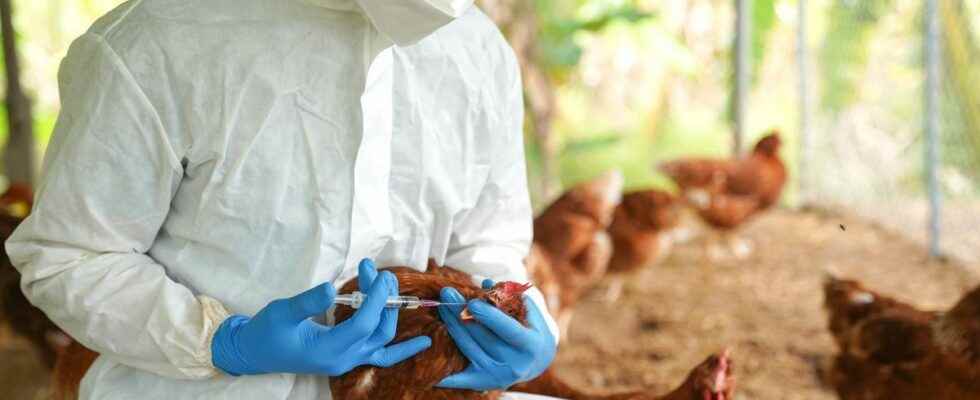Published on
Updated
Reading 2 mins.
Avian flu continues to cause the massive slaughter of poultry in France and Europe. To counter this scourge, the State wants to act and plans to vaccinate animals next fall, in 2023. The opinion of Dr. Bruno Pelletier, veterinarian and vice-president of the union of liberal practicing veterinarians Ile-de-France .
More than three million animals have been slaughtered, half of them ducks, due to bird flu, according to figures from the Ministry of Agriculture. And since August 1, 226 outbreaks have been identified in France. This is what prompted the state to set a goal for poultry vaccination in the fall of 2023.
An action plan for the fall
Of these slaughtered animals, two-thirds, or two million, were in December. This is why the government wants to launch a vaccination campaign for poultry from next autumn, in order to “to avoid a new crisis”.
An ambitious goal, because for the moment, no vaccine is available. But the ministry wants to be positive on the issue. “To date, they are rather encouraging, with a good response to the virus“. The first results of the experiments carried out should be unveiled next March.
More than 50 million animals slaughtered
Avian flu has been particularly “destructive” in the past two years, according to European authorities, who estimate that a total of 50 million animals were slaughtered on affected farms in 2021 and 2022.
A spread linked to the “high migratory activity of wild birds”, says the ministry. An element confirmed by Dr Bruno Pelletier, vice-president of the union of liberal practicing veterinarians Ile-de-France. “Avian flu is actually transmitted mainly by migrating wild animals.. A disease that spreads quickly and is difficult to contain. “The only solution, when an animal is sick, is containment, then in the event of an outbreak, unfortunately, you have to go through slaughter” adds the specialist.
“Keep a certain vigilance against viruses”
The “One Heath” project promoted by the World Health Organization (WHO) and at our national level, by the National Agency for Food, Environmental and Occupational Health Safety (Anses) “encourages consideration of all disease emergence factors“. A recommendation that fits perfectly with avian flu. “It is important to have regulations governing this type of pathologies” approves Dr. Pelletier. “To follow the deaths of wild animals, to carry out autopsies to find out what they died of and to monitor possible transmissions to humans. This makes it possible to maintain a form of vigilance, in the face of these viruses“concludes the specialist.
